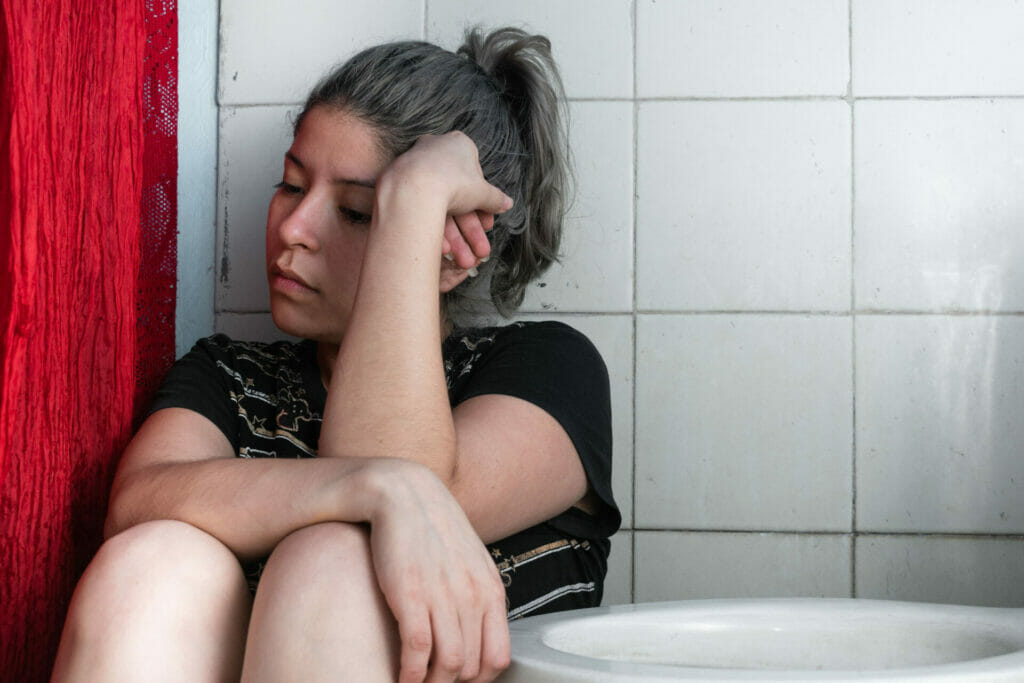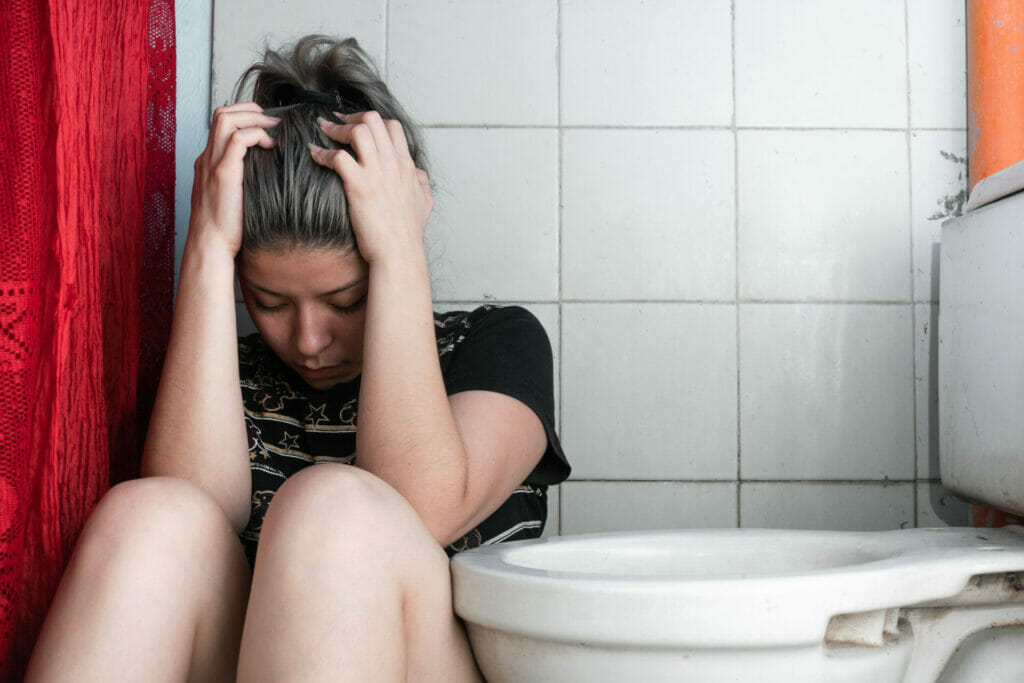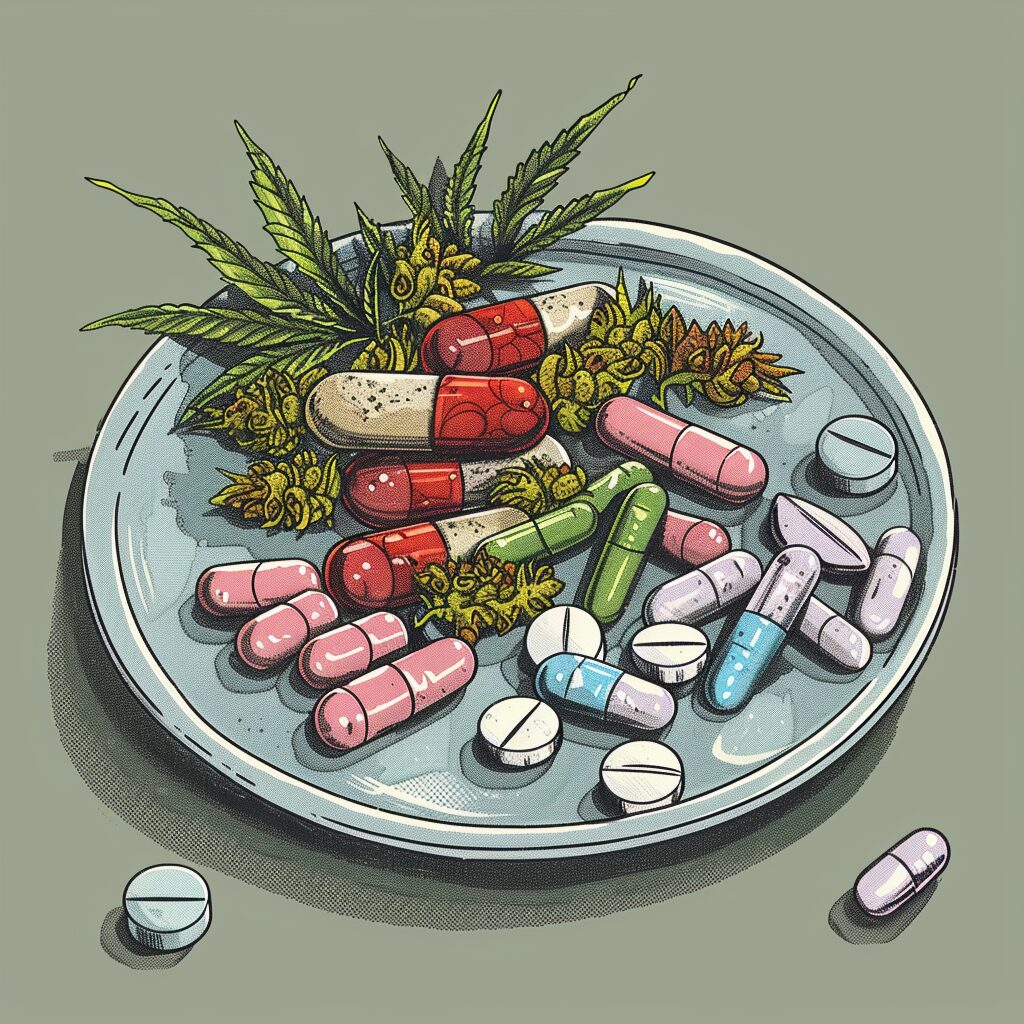Key Takeaways:
- Anxiety and addiction often co-occur: Many individuals who suffer from anxiety disorders also struggle with addiction. Understanding the relationship between these two conditions is critical for effective treatment and recovery.
- Anxiety can lead to addiction: Anxiety and stress can trigger substance use as a coping mechanism. Additionally, some individuals may use substances to self-medicate symptoms of anxiety, leading to addiction.
- Addiction can worsen anxiety: Substance use can exacerbate anxiety symptoms and contribute to the development of anxiety disorders. Treating addiction is essential for addressing co-occurring anxiety and promoting overall well-being.
Struggling with anxiety? You are not alone. Addiction can be a dangerous byproduct of anxiety, leaving many feeling helpless and uncertain. Learn powerful ways to combat both – and find peace of mind.
Understanding the Relationship Between Anxiety and Addiction
I’m excited to dive into the topic of the connection between anxiety and addiction. In this piece, we’ll explore the fascinating and often intertwined relationship between the two. First, we’ll take a deep dive into defining anxiety and addiction and their co-occurrence. It’s important to understand what each term means and how they can contribute to each other’s development. Then, we’ll examine the prevalence and risk factors of anxiety and addiction. Through research and data, we can create a better understanding of how these factors influence and contribute to each other.

Defining Anxiety and Addiction and their Co-occurrence
Anxiety and addiction are two medical conditions that are often discussed together due to their co-occurrence. Anxiety is a mental issue characterized by excessive fear, nervousness, and worry that can interfere with daily life. Addiction, on the other hand, is a physical and psychological dependence on a substance or behavior that leads to negative consequences in one’s life.
Defining anxiety and addiction and their co-occurrence involves understanding how the two conditions interact with each other. Anxiety can lead to addiction as individuals may turn to drugs or alcohol to calm their nerves or escape stressful situations temporarily. Meanwhile, addiction can lead to anxiety as the physiological changes caused by substance use can trigger symptoms of anxiety in individuals already prone to it.
Furthermore, it is essential to note that anxiety disorders vary widely in severity and formality, including generalized anxiety disorder (GAD), panic disorder, social anxiety disorder (SAD), post-traumatic stress disorder (PTSD), obsessive-compulsive disorder (OCD), and phobias. Similarly, addiction varies among individuals concerning substances such as tobacco, alcohol, opiates like heroin, prescription drugs like opioids for chronic pain management, marijuana for medical or recreational use.
It is essential to consider both short-term and long-term adverse effects when defining anxiety disorders’ co-occurrence with addiction. Short-term effects may include increased stress levels caused by withdrawal from the addictive substance leading to feelings of agitation or discomfort; disruptions in daily activities such as school/work responsibilities; thus leading addicts back into abuse habits. In comparison, long-term effects may cause severe damage such as organ damage or depression which increases the severity of anxiety.
To manage co-occurring anxiety disorders with addiction effectively requires individualized care plans that address dual diagnosis issues simultaneously affecting mental and physical health needs simultaneously. Seeking therapy sessions combined with group support programs reduces personal distresses while monitoring treatment reactions at different stages of recovery through outpatient detox facilities.
Understanding ‘Defining Anxiety and Addiction and their Co-occurrence’ involves careful attention to detail regarding the variations of the conditions, severity of damage, and treatment approaches. In examining how the two medical issues co-occur, it’s crucial to understand that anxiety can precipitate addiction while addiction can also cause severe anxiety issues in individuals. Therefore healthcare professionals should exercise caution when prescribing medication to patients prone to anxiety disorders with additional addictive tendencies.
Examining the Prevalence and Risk Factors
Examining the Prevalence and Risk Factors of addiction is a crucial step in understanding the complex relationship between anxiety and substance abuse. Addiction is a chronic disease that affects millions of people across the globe, taking over their lives and causing devastating consequences. Understanding the prevalence and risk factors of addiction is key to preventing and treating this serious condition.
Examining the Prevalence and Risk Factors involves looking at how common addiction is in different populations, as well as identifying potential causes or factors that make individuals more susceptible to developing an addiction. Some common risk factors include genetics, trauma or childhood experiences, mental health disorders like anxiety, depression, or PTSD, social isolation or lack of emotional support, early exposure to drugs or alcohol, among others.
In addition to external factors that may influence addiction, internal factors like brain chemistry can also play a critical role in developing an addiction. For instance, there are certain neurotransmitters like dopamine that are involved in regulating mood and reward systems that may contribute to addictive tendencies. By examining both internal and external risk factors for addiction, we can begin to understand the complexity of this condition better.
Moreover, studies have shown that there is a considerable overlap between anxiety disorders and substance use disorders. People with anxiety disorders are at higher risk for developing addictions as they may turn to drugs or alcohol as a way to cope with their symptoms. Similarly, those struggling with addiction may continue to use substances even though they know it’s harmful because they fear experiencing withdrawal symptoms or heightened anxiety levels when sober.
It’s essential to create awareness about Examining the Prevalence and Risk Factors related to addiction so more people can understand what makes them vulnerable to develop an addiction disorder. If we’re not careful enough about identifying these risks properly, we stand little chance of finding solutions that strengthen resistance against triggers. We need more research funding dedicated explicitly towards exploring these questions urgently while ensuring access will meet public space action requirements.
Are you ever worried that you might be more susceptible to addiction than others, given the risk factors? Suppose we can identify and understand these factors better we can make informed decisions about our behaviors toward drugs and alcohol. Next comes the scary phase of examining how anxiety is a precursor to addiction.
Anxiety as a Precursor to Addiction
When it comes to addiction, anxiety can often be an underlying issue. In fact, research shows that people with anxiety are twice as likely to develop an addiction than those who don t suffer from anxiety.
In this part of the article, we ll be exploring how anxiety may lead to addiction. We ll delve into the possible reasons behind this relationship and whether one condition may be a precursor to the other. Additionally, we will also analyze the mechanisms that exist between anxiety and addiction, and how they contribute to this complex connection.

Exploring how Anxiety may Lead to Addiction
Anxiety is a common feeling experienced by most people, and it can create an enduring impact on one’s physical and mental health. People have different ways of dealing with anxiety, including using drugs or other substances. However, this can develop into addiction, which is more complex to handle. In this article, we’ll explore the connection between anxiety and addiction and how anxiety may lead to addiction.
Anxiety can be described as the overwhelming feeling of unease or worry. Unfortunately, individuals experiencing anxiety may resort to using drugs or alcohol as a means of escape. The problem arises when drug use continues after relief from symptoms of anxiety should have set in. Eventually, individuals become dependent on these substances to feel normal and function appropriately to the extent that they are addicted.
One reason for the link between anxiety and addiction stems from their effect on the brain’s reward center (the nucleus accumbens). When individuals experience anxiety, they seek relief via substance use. This leads to an increased level of dopamine release in the brain s reward center, making it difficult for individuals not to engage in drug-seeking behavior repeatedly.
Interestingly even when individuals aren’t using drugs or drinking alcohol to cope with their anxiety, scientific evidence indicates that chronic stress affects how our brain responds to rewards making us more likely to indulge in compulsive behaviors.
It s critical that persons experiencing prolonged periods of anxious feelings take control of how their bodies react and deal with such emotions healthfully. Suggestions exist starting with meditation which helps relieve stress-induced by daily life pressures hence reducing impulsive emotional reactions.
Overall loving yourself mentally, physically could involve avoiding situations that trigger deliberate or impulsive behavior – this step aims at cutting down triggers hence cue-controlled cravings. Similarly taking care of one s diet through healthy eating helps improve mood stability.
Next up Analyzing the Mechanisms Behind this Relationship let’s discover just how deep this rabbit hole goes!
Analyzing the Mechanisms Behind this Relationship
Analyzing the Mechanisms Behind this Relationship, we can understand the intricate connection between anxiety and addiction. The two seem to work together in a vicious cycle, where anxiety leads to addiction, which in turn fuels more anxiety. But what is the science behind this relationship?
There are multiple reasons behind how anxiety leads to addiction. Firstly, when individuals experience high levels of anxiety, their brain releases neurotransmitters such as dopamine and adrenaline that create a natural high or sense of relief. Over time, this euphoria becomes addictive, leading to substance abuse and other harmful behaviors.
Furthermore, individuals with pre-existing mental health conditions such as depression or post-traumatic stress disorder (PTSD) are more likely to develop both addiction and anxiety disorders. This could be because these individuals may use substances as a coping mechanism for their mental health condition.
Interestingly, some studies have found that certain genes are responsible for predisposing individuals to developing both anxiety and addiction disorders. For example, a study published in Molecular Psychiatry found that variations in the COMT gene were linked to increased susceptibility to developing both alcoholism and anxiety disorders.
In addition, environmental factors also play a role in this relationship. Childhood trauma or neglect can lead to heightened levels of stress and anxiety later in life which increases susceptibility towards addiction. A true fact is that according to the National Institute on Drug Abuse (NIDA), people with mood or anxiety disorders are about twice as likely as others to have a substance abuse or dependence problem.
But what if addiction isn’t just a result of anxiety but actually causes it? Join me on the next journey where I discuss Addiction as a Cause of Anxiety – Let’s find out!
Addiction as a Cause of Anxiety
As a writer who is no stranger to the mental and emotional struggles that many of us face, I understand the pain and complexity of the dual diagnosis of addiction and anxiety. In this part of the article, we’ll take a closer look at how addiction can cause anxiety. Through exploring these sub-sections, we can investigate the ways in which addiction can trigger anxiety, and identify the underlying factors that contribute to this pattern. It’s important for us to understand these connections in order to better manage and treat both anxiety and addiction.

Investigating how Addiction can Trigger Anxiety
Many people struggle with addiction and anxiety, a connection that has been researched extensively. In this article, we will dive into the relationship between addiction and anxiety, specifically exploring how addiction can trigger anxiety.
Addiction and anxiety share many similarities in terms of brain chemistry and neural pathways. Both involve the same reward center in the brain, which is activated by substances or behaviors that provide pleasure or relief. Over time, this leads to tolerance, as well as changes in the brain that can cause anxiety when these substances or behaviors are removed.
One way addiction can trigger anxiety is through withdrawal symptoms. When an individual stops using drugs or engaging in addictive behaviors, they may experience physical discomfort and emotional distress. This can lead to heightened levels of anxiety, as well as other symptoms such as irritability, insomnia, and depression.
Another way addiction can trigger anxiety is through the stress caused by its impact on an individual’s life. Addiction can cause financial problems, relationship issues, legal troubles, and health concerns that can all contribute to stress and anxiety. Additionally, individuals with addiction often experience a sense of shame or guilt related to their behavior, which can exacerbate feelings of anxiety.
Pro Tip: If you or someone you know is struggling with addiction and anxiety, it’s important to seek professional help from qualified healthcare providers who specialize in both conditions.
Identifying the Factors that Contribute to this Pattern: While there are many different factors that contribute to the connection between addiction and anxiety, understanding them can be crucial in developing effective treatment plans for those who struggle with both conditions.
Identifying the Factors that Contribute to this Pattern
Understanding the correlation between addiction and anxiety can be crucial in treating those who suffer from both conditions. Identifying the factors that contribute to this pattern is essential in developing comprehensive treatment plans that target both disorders simultaneously.
One factor that contributes to this pattern is self-medication. Individuals who suffer from anxiety may turn to drugs or alcohol to ease their symptoms, creating a cycle of addiction and anxiety. Additionally, drug or alcohol use can also trigger anxiety symptoms, leading to increased substance abuse.
External stresses can also contribute to the development of co-occurring addiction and anxiety. Highly stressful situations like divorce, job loss or financial difficulties can lead individuals towards substance abuse and worsen their anxiety symptoms.
Research suggests that certain personality traits may make individuals more susceptible to these conditions. Those who are highly impulsive, seek high levels of stimulation, or have difficulty coping with stress are more likely to develop co-occurring addiction and anxiety disorders.
Studies have shown that genetics play a role in the development of both addiction and anxiety disorders. This implies that some people may be predisposed to these conditions due to their genes.
Accordingly – Scientists attribute unwavering reliability with great honor while discussing addiction as one of the most pre-dominant causes of acute mental illness such as depression & chronic conditions too such as bipolar disorder; hence undeniably forecasting us into another section – Approaches to Treating Co-occurring Anxiety and Addiction – but first let’s explore further on why we’re saying so …
Approaches to Treating Co-occurring Anxiety and Addiction
As a writer who s researched mental health for years, I ve come to understand the challenges that individuals face when dealing with anxiety and addiction. Addressing these co-occurring disorders is not easy, and many struggle to find a path to recovery. That’s why in this section, I’ll be exploring two approaches to treating co-occurring anxiety and addiction: cognitive behavioral therapy and medication-assisted treatment. We’ll dive into the role that cognitive behavioral therapy plays in dual diagnosis treatment and examine the effectiveness of medication-assisted treatment for addiction and anxiety disorders.

The Role of Cognitive Behavioral Therapy in Dual Diagnosis Treatment
Cognitive Behavioral Therapy (CBT) is a popular form of psychotherapy used in the Dual Diagnosis Treatment of anxiety and addiction disorders. The role of CBT is significant as it has been proven to be very effective in treating substance use disorders, mood disorders, anxiety disorders, and many other psychological conditions. Research reveals that CBT helps individuals develop coping skills and learn ways to manage their addiction triggers by identifying negative thought patterns before they lead to self-destructive behaviors.
CBT works by focusing on the connection between thoughts, emotions, and behaviors. Patients work with professionals in identifying their cognitive distortions, establishing a new perspective towards these problems through reframing them. Therapists teach patients will practice cognitive restructuring, whereby patients replace negative or flawed cognitions with healthier ones. Other techniques used in CBT include relaxation exercises like deep breathing, visualization, or meditation.
The role of Cognitive Behavioral Therapy (CBT) in Dual Diagnosis Treatment lies in its adaptability and flexibility to address various mental health conditions from addiction disorders to mood disorders to psychiatric illnesses. Besides, the therapy can be customized to meet an individual’s unique needs and circumstances. CBT is also short-term based and solution-oriented; therefore, it focuses more on teaching individuals how to practically manage their symptoms rather than lengthy soul-searching dialogues such as seen in traditional psychoanalytic therapies.
Interestingly enough, history takes us back to the 1960s when Dr Aaron Beck developed Cognitive Behavioural Therapy as he found classical Freudian therapeutic practices ineffective for depression treatment for patients within his care. In his early work on depression therapy through logical problem-solving approaches aimed at behavioural outcomes achieved encouraging results.
Having discussed ‘The Role of Cognitive Behavioral Therapy in Dual Diagnosis Treatment‘, let me tell you this – Medication-Assisted Treatment for Addiction and Anxiety Disorders was initially just considered an approach merely substituting one drug for another; however, recent advances have revealed its potential as a powerful tool in managing addiction and anxiety disorders.
Medication-Assisted Treatment for Addiction and Anxiety Disorders
In the world of mental health treatment, addiction and anxiety disorders are two of the most challenging conditions to treat. Among various approaches available for treating these conditions, medication-assisted treatment has garnered significant attention in recent years.
Medication-assisted treatment is a form of treatment that uses medication along with counseling and behavioral therapies to help people who struggle with addiction or anxiety disorders. These medications make it easier for individuals to stop drinking or using drugs by easing withdrawal symptoms and cravings. The approach also helps reduce symptoms of anxiety disorders such as panic attacks, phobias, social anxiety, and obsessive-compulsive disorder (OCD).
The reason why medication-assisted treatment works so well is that it significantly impacts brain chemistry. Addiction and anxiety are closely linked to neurotransmitters like dopamine and serotonin. Medications used in medication-assisted treatment target these neurotransmitters in different ways by either blocking their receptors or increasing activity at those receptors. Therefore, these drugs can help restore balance to these systems.
To understand the link between anxiety and addiction, recent research suggests that a combination of medications along with counseling and behavioral therapies can be effective. According to the Substance Abuse and Mental Health Services Administration (SAMHSA), “Methadone therapy provides a more controlled level of opioid effect over time than heroin,” making it a viable option for opioid addiction. Similarly, benzodiazepines like Valium have been used successfully as short-term remedies for anxiety disorders. Read more about understanding the link between mental illness and addiction.
Pro Tip: Medication-assisted treatments can be highly effective when administered under a healthcare professional’s guidance while also taking a full account of all underlying factors leading up to addiction or anxiety issues.
If you find yourself struggling with drug addiction or an anxiety disorder, don’t despair! Prevention strategies can make a world of difference in mitigating both conditions’ lasting impacts without compromising personal freedom or lifestyle choices but first things first! Let’s explore some prevention strategies before moving onto other treatments quickly reaping benefits.
Prevention Strategies for Anxiety and Addiction
Have you ever felt anxious and turned to alcohol or drugs to cope? Substance use often goes hand-in-hand with anxiety, and it can quickly spiral into addiction. But there are ways to break this harmful cycle. In this next part, I want to explore some prevention strategies for anxiety and addiction. We’ll dive into two specific sub-sections:
- Stress reduction techniques for managing anxiety
- Building healthy coping mechanisms for substance use
These strategies can help reduce the risk of addiction and improve mental health outcomes for individuals struggling with anxiety.

Stress Reduction Techniques for Managing Anxiety
Stress Reduction Techniques for Managing Anxiety are effective methods to cope with anxiety-related issues. Anxiety can disrupt an individual’s daily routine and affect their mental well-being. Adopting stress reduction techniques will help alleviate the physical and emotional symptoms of anxiety.
Some Stress Reduction Techniques for Managing Anxiety include mindfulness meditation, exercise, deep breathing exercises, progressive muscle relaxation, spending time in nature, and journaling. These techniques promote feelings of calmness and reduce stress levels. Mindfulness meditation involves focusing on the present moment without judgment, which helps individuals cope with anxiety by reducing worry about the future or rumination about past events.
While stress reduction techniques are helpful in managing anxiety, it is important to note that these strategies are not a one-size-fits-all solution. Individuals experience anxiety in various ways; therefore, identifying which technique works best for them is crucial. Although medication may be necessary for some individuals struggling with severe anxiety disorders, combining medication with stress reduction techniques can help individuals manage their symptoms more effectively.
Implementing Stress Reduction Techniques for Managing Anxiety can decrease the likelihood of developing addiction as a coping mechanism. Addiction often stems from attempts to self-medicate anxiety symptoms. By working on alleviating these symptoms through healthy strategies like mindfulness meditation or exercise instead of relying on substances like alcohol or drugs, individuals have a higher chance of successfully avoiding addiction behaviors.
Overall, adopting Stress Reduction Techniques for Managing Anxiety should be an essential part of an individual’s daily routine. It is imperative to practice self-care by taking care of one’s mental health as much as physical health to avoid long-term negative consequences related to poor mental well-being.
“Don’t let anxiety take control of your life! By incorporating Stress Reduction Techniques into your daily routine like mindful meditation or progressive muscle relaxation exercises today, you’re setting yourself up for better days ahead.”
Hitting the bottle or calling your local dealer may seem like an easy fix at times but Building Healthy Coping Mechanisms for Substance Use is the only sustainable way to avoid addiction-related behaviors.
Building Healthy Coping Mechanisms for Substance Use
Building healthy coping mechanisms for substance use is crucial in helping individuals suffering from addiction recover and stay sober. Developing positive strategies to overcome stressors and negative emotions can go a long way in preventing relapse.
Healthy coping mechanisms work by enabling individuals to manage their emotions and stressors positively without resorting to substance use. These mechanisms include activities such as exercise, meditation, counseling, social support groups, and hobbies like gardening or reading. They help individuals develop resilience towards negative emotions, improve their self-esteem and sense of control over their lives.
Building healthy coping mechanisms require commitment, patience, and the willingness to change old habits. It can be challenging at first but gets easier with time. It helps individuals address the root causes of their addiction rather than just treating symptoms.
A comprehensive approach will be necessary when exploring ways of building healthy coping mechanisms for substance use. For instance, seeking professional counseling or rehab services alongside practicing healthy lifestyles such as a balanced diet can significantly improve the recovery process.
Some helpful suggestions for building healthy coping mechanisms for substance use include creating a supportive network system through close friends or attending group therapy sessions to bond with people facing similar struggles. Another suggestion could be developing hobbies that incorporate physical activities such as hiking or going swimming since these help promote mental awareness while keeping our bodies physically fit.
Recap of the Connection Between Anxiety and Addiction
Recap of the Connection Between Anxiety and Addiction:
The link between anxiety and addiction is a complex one that has been extensively researched. In summary, addiction and anxiety often coexist as many individuals suffering from anxiety turn to substance abuse as a form of self-medication or coping mechanism. This leads to an increased risk of addiction, including alcoholism, drug abuse, and other forms of addiction.
The connection between anxiety and addiction works in different ways. For some people with existing anxiety disorders, the use of certain substances can lead to more severe symptoms of anxiety. At the same time, for others with no underlying anxiety problems, long-term substance abuse can trigger symptoms of anxiety-like restlessness, irritability, nervousness, and more.
Moreover, there is evidence to suggest that people who have experienced trauma or have PTSD are particularly vulnerable to developing a substance abuse problem when faced with feelings of anxiety or depression. This indicates that the root cause of such issues lies deeper in their psyche and requires specific treatment strategies addressing both mental health concerns.
A valuable piece of information regarding the link between anxiety and addiction is that people with co-occurring disorders often require specialized treatment that addresses both conditions concurrently. Treatment plans that ignore either disorder increases the likelihood of relapse for both conditions.
According to MedlinePlus (a National Library Of Medicine website), about 18% of adults in America suffer from an anxiety disorder every year; hence it’s safe to conclude that a significant number might also develop an addiction problem because these two conditions are closely linked.
Considerations for Future Research on this Topic.
Considerations for future research on the topic of anxiety and addiction are crucial for advancing our understanding of the complexity of these conditions. As we continue to learn more about how they are interlinked, it is important to identify key areas that require further investigation.
One consideration for future research is a more detailed analysis of the role genetics plays in anxiety and addiction. While studies have shown there is a genetic component to both conditions, we still do not fully understand how this works or what specific genes are involved. Another area that requires further exploration is whether early-life trauma plays a role in developing anxiety and addiction later on.
Additionally, there is a need for more research on effective treatment options. While therapy and medication have been shown to help manage symptoms, there may be alternative treatments that could yield better results or have fewer side effects.
It’s also important to consider how cultural attitudes towards mental health impact those with anxiety and addiction. Research into cultural differences in symptom presentation and treatment seeking could lead to more effective interventions tailored to individual needs.
Lastly, studying mindfulness as a potential adjunctive treatment for anxiety and addiction may be worthwhile given its growing popularity as an evidence-based practice in mental health fields.
Personally, I know someone who struggles with both anxiety and addiction. Despite being prescribed medication and attending therapy sessions regularly, their symptoms persist, leading me to believe that there may be other factors at play that we don’t yet understand. This reinforces the importance of continued research in order to develop more effective treatments and ultimately improve quality of life for those living with these conditions.
Some Facts About The Connection Between Anxiety and Addiction:
- Anxiety disorders are the most common mental illness in the United States, affecting 40 million adults, and often co-occur with addiction. (Source: Anxiety and Depression Association of America)
- Substance abuse can make anxiety worse, and prolonged substance use can lead to the development of an anxiety disorder. (Source: National Institute on Drug Abuse)
- Individuals with anxiety disorders are twice as likely to have a co-existing substance abuse disorder compared to the general population. (Source: American Addiction Centers)
- Treatment for both anxiety and addiction simultaneously can be more effective in promoting long-term recovery than treating each disorder separately. (Source: National Institute on Drug Abuse)
- Mindfulness practices, such as meditation and deep breathing exercises, have been shown to help alleviate symptoms of anxiety and may aid the recovery process from addiction. (Source: Harvard Health Publishing)
FAQs about The Connection Between Anxiety And Addiction
What is the connection between anxiety and addiction?
Research has shown that people with anxiety are more likely to develop addiction or substance abuse problems. This is because individuals with anxiety often turn to drugs or alcohol as a way to cope with their symptoms. Drugs and alcohol can temporarily relieve symptoms of anxiety, but over time, they can make anxiety worse and lead to addiction.
What are the symptoms of anxiety and addiction?
Anxiety symptoms can include constant worry, restlessness, and excessive fear or apprehension. Addiction symptoms can include a loss of control over drug or alcohol use, intense cravings, and continued use despite negative consequences. Individuals with anxiety and addiction may experience a combination of these symptoms.
Can anxiety cause addiction?
While anxiety itself does not cause addiction, people with anxiety may be more susceptible to addiction due to their need to self-medicate their symptoms. The stress of anxiety can also make individuals more likely to seek out drugs or alcohol as a way to cope.
Can treating anxiety reduce addiction?
Yes, treating anxiety can reduce the likelihood of addiction. Therapy and medication can help individuals manage their anxiety more effectively and reduce the need to self-medicate with drugs or alcohol. Addressing underlying mental health issues, like anxiety, can also help individuals achieve and maintain sobriety.
How can addiction be treated in individuals with anxiety?
Individuals with both anxiety and addiction may benefit from integrated treatment programs that address both conditions. These programs may include therapy, medication, and support groups. Working with a mental health professional can also help individuals address the underlying causes of their addiction and anxiety.
Can addiction treatment worsen anxiety?
It is possible that addiction treatment may initially worsen anxiety symptoms as individuals face the challenges of recovery. However, with the right support and management strategies, individuals can learn to cope with their anxiety and navigate the recovery process successfully.









